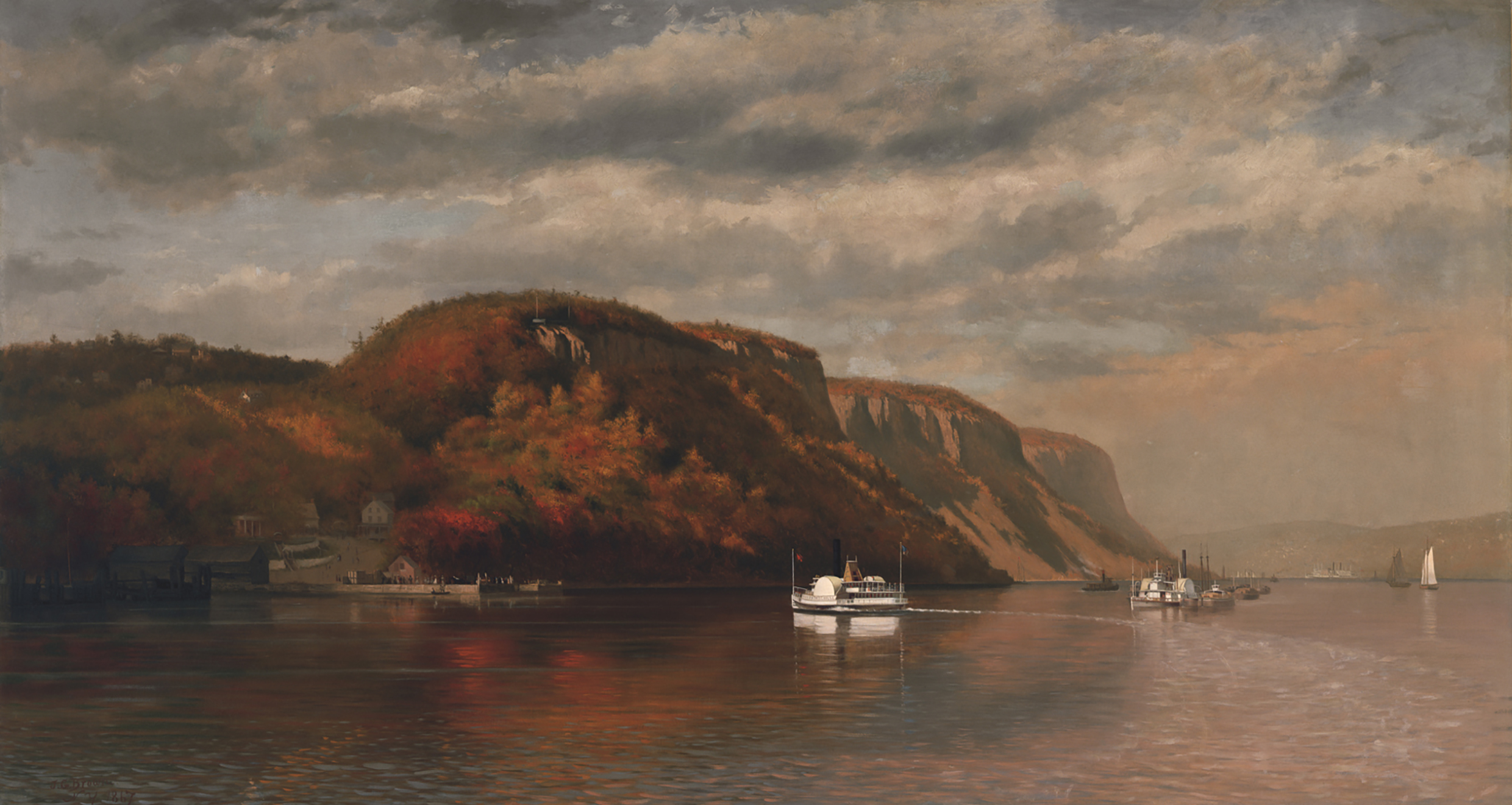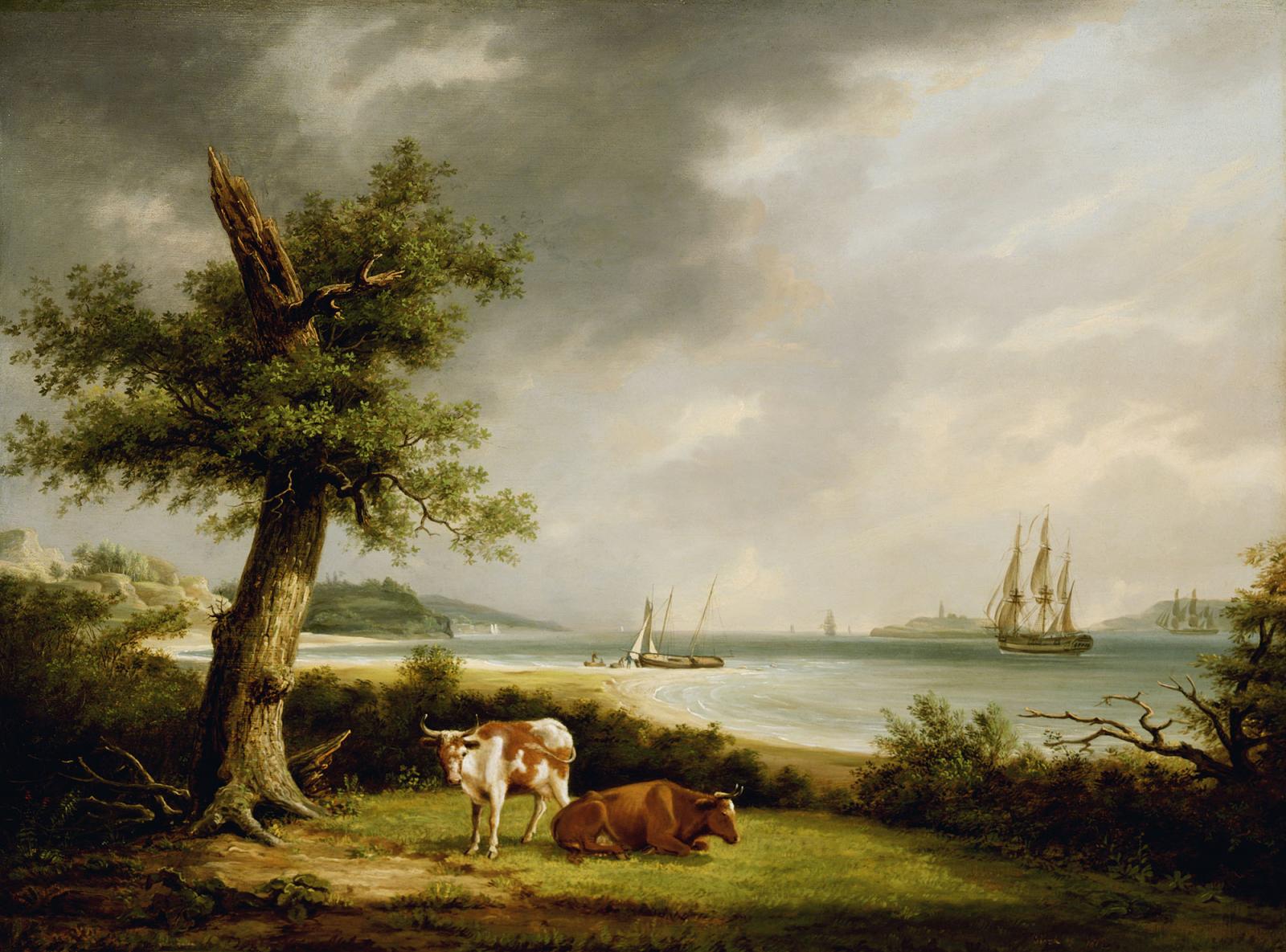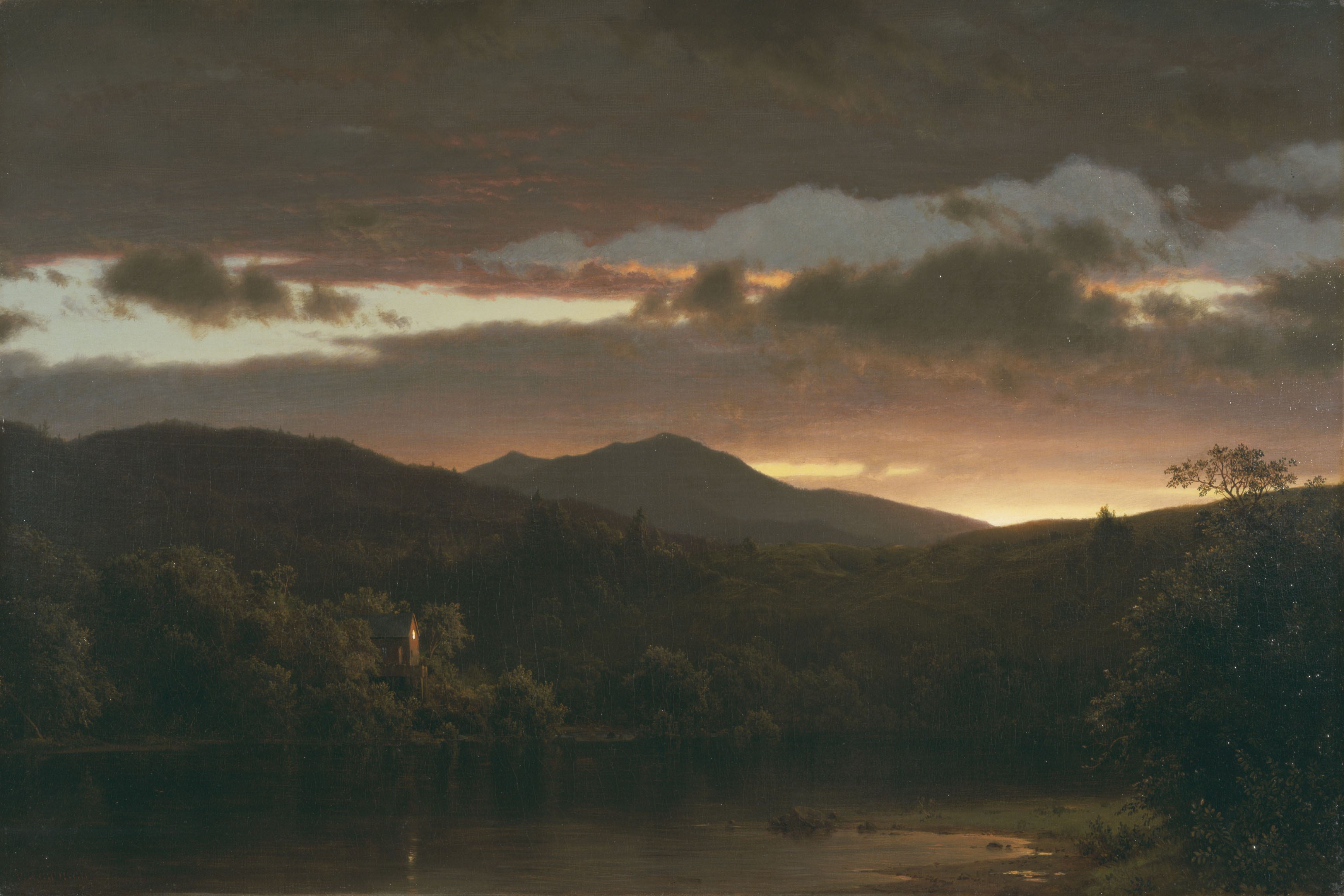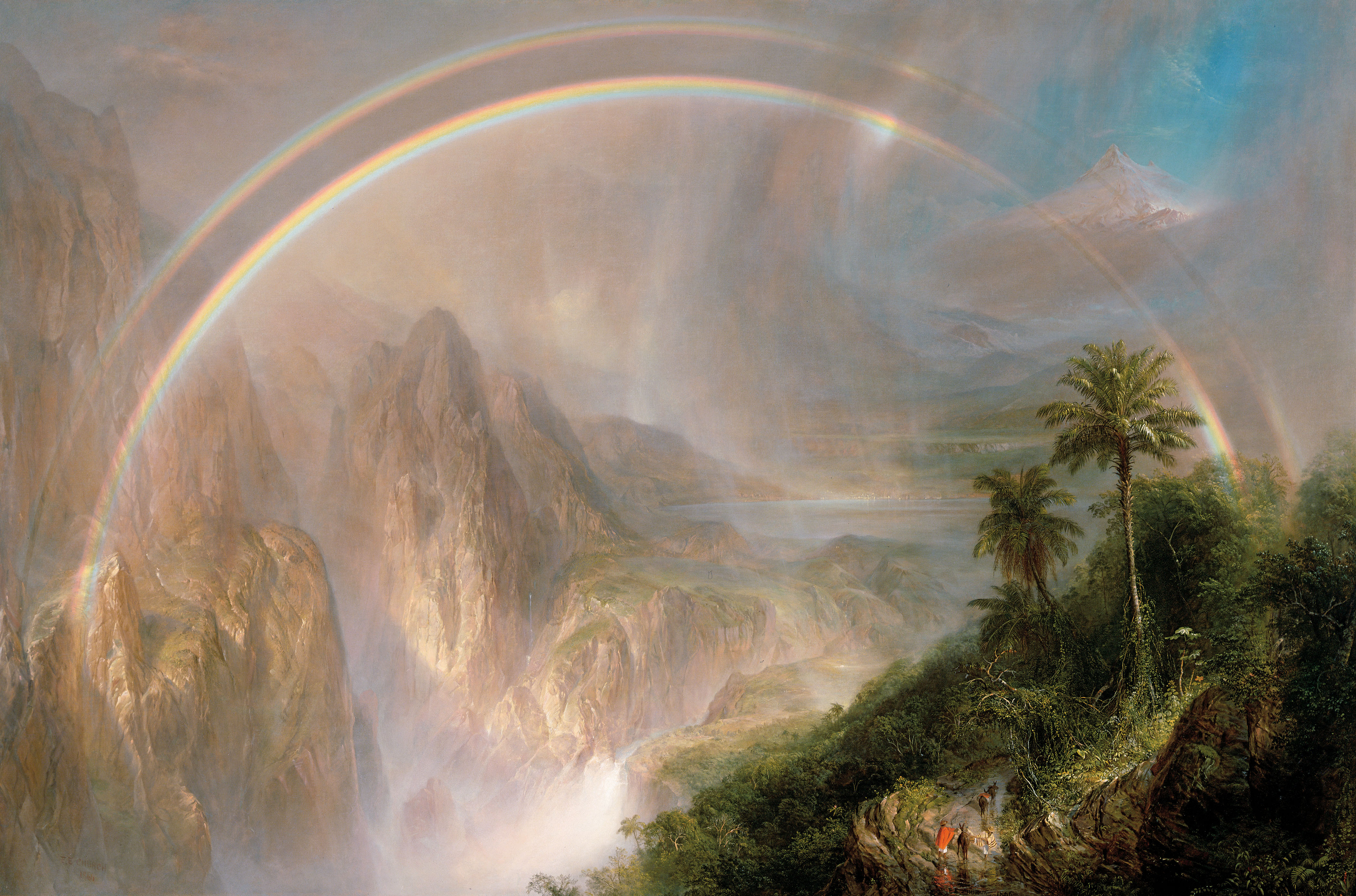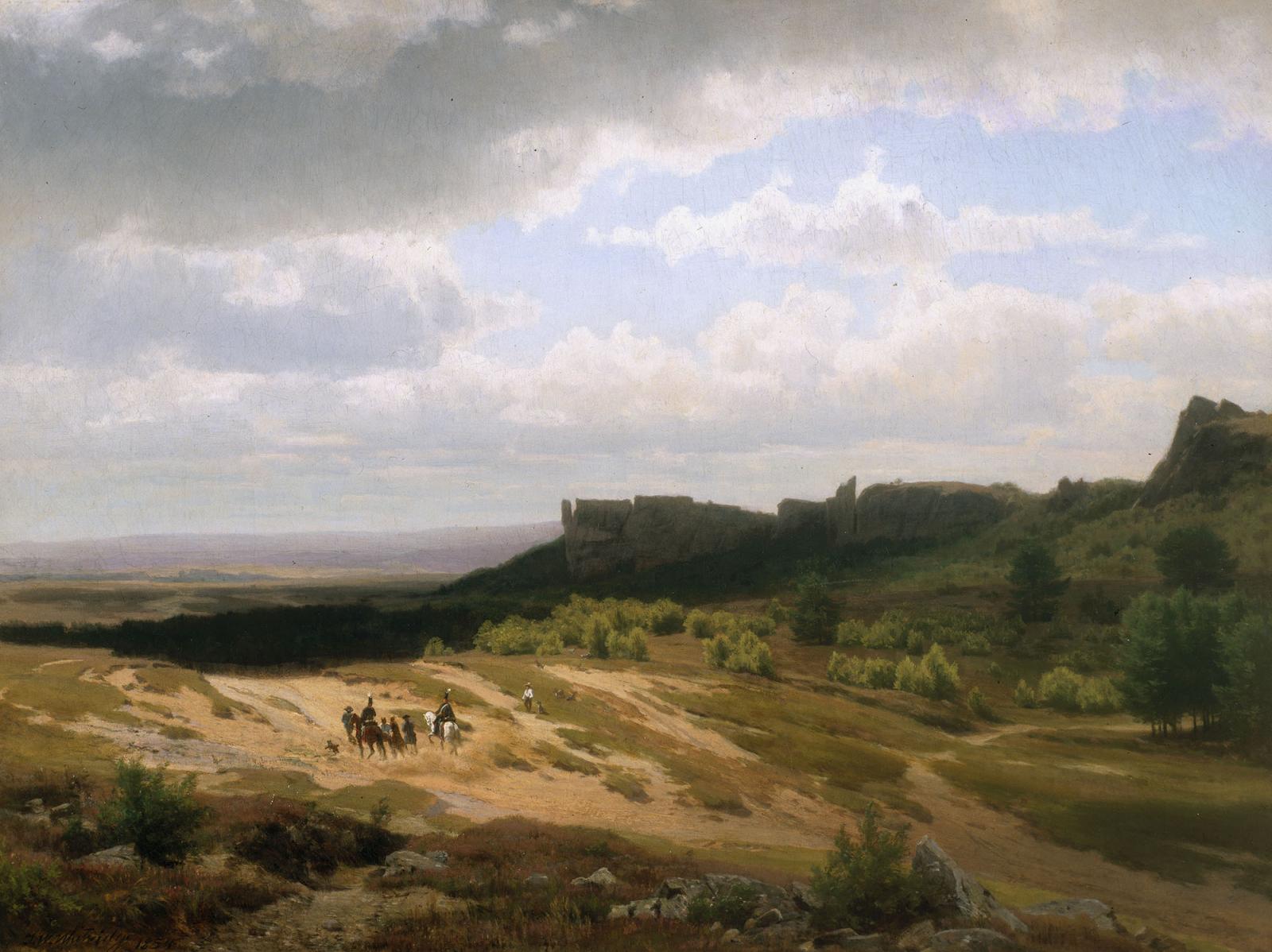A View from the Berkshire Hills, near Pittsfield, Massachusetts
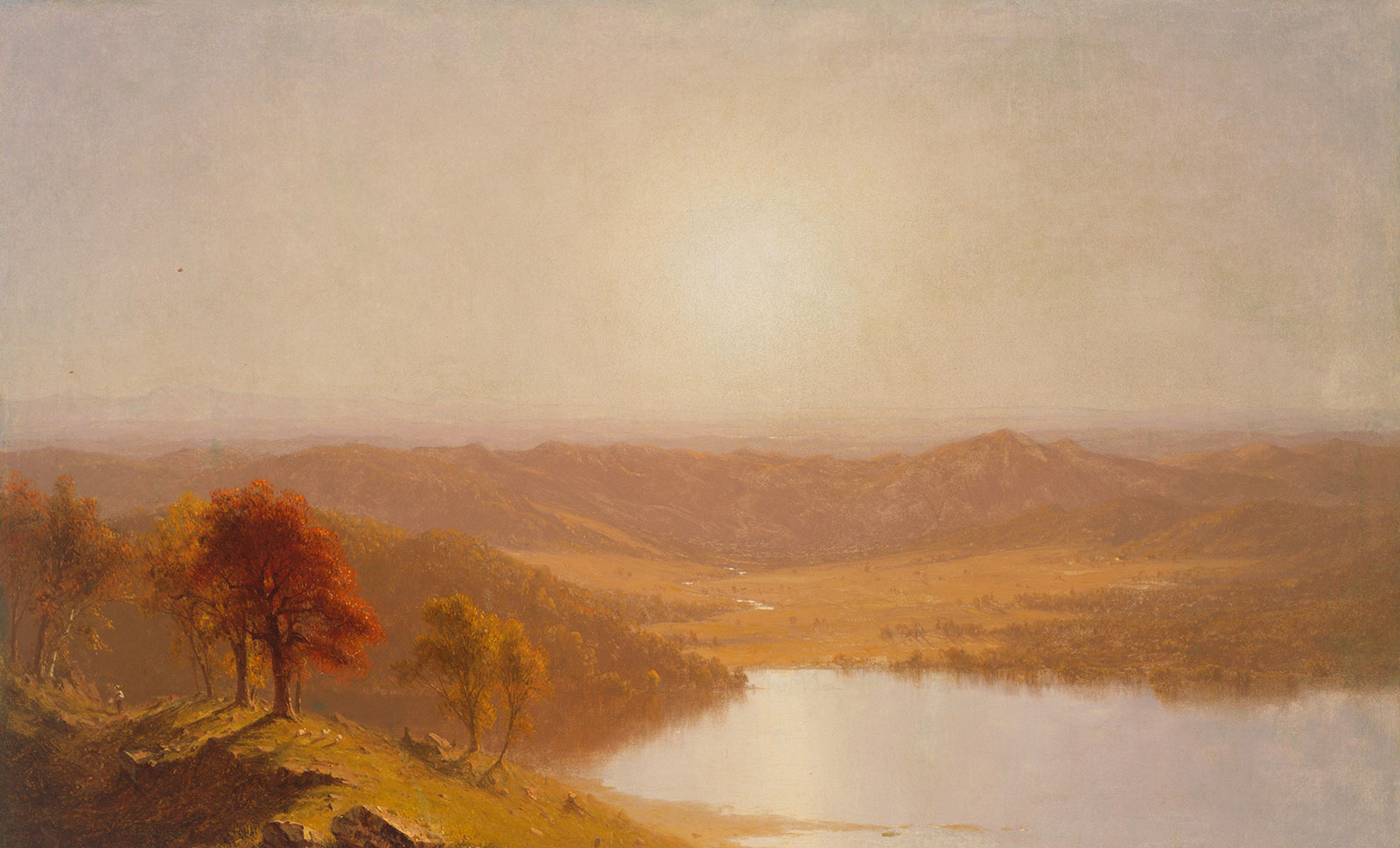
What words can be used to describe light?
Gifford, who once described landscape painting as “air painting,” here captured the hazy atmosphere of a sunny afternoon in autumn, presenting us with a low, hilly landscape rolling beneath a pale and misty sky. This painting was inspired by a sketching trip the artist took in September 1862, when he spent about three weeks traveling with the artists Launt Thompson and Worthington Whittredge along the Housatonic River in western Connecticut and Massachusetts.
